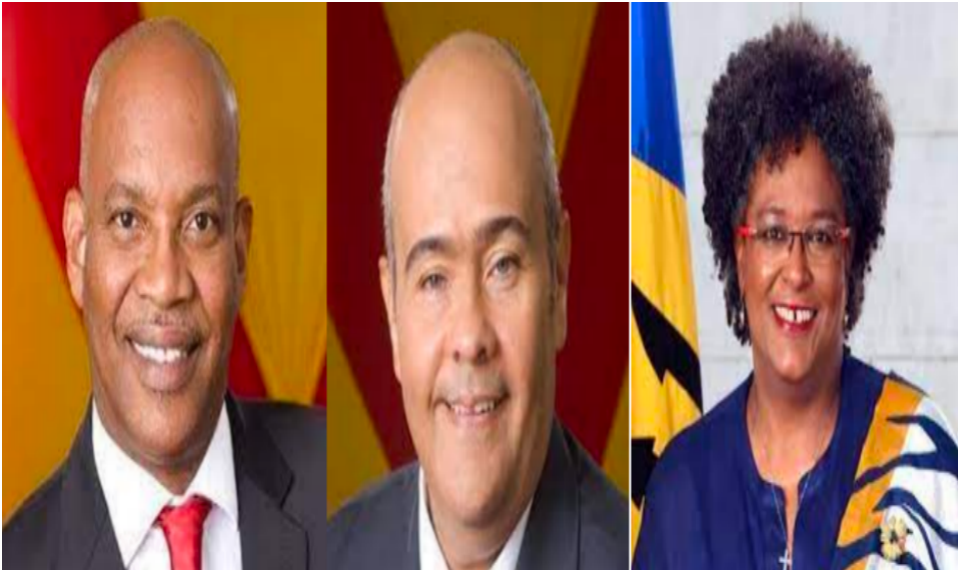Submitted by the People’s Democratic Congress
In his January-September 2010 review of the performance of the Barbados, the Governor of the Central Bank of Barbados, Dr. Delisle Worrell, confirmed what the PDC has been saying to many persons on BU and elsewhere, that the state of the so-called Barbados economy is such that it continues to worsen.
What will be very distressing to us than that situation, though, is that at the end of December 2010, Barbados will have experienced its third straight year of so-called economic decline.
However, a cursory look at the accompanying data in the Central Bank’s 2010 Press Release would reveal also a number of troubling things about the general direction in which the so-called economy is heading:
- that the economy for the period under review (Jan-Sept) contracted by a further 0.9 per cent when contrasted with the period Jan-Sept 2009;
- that the international reserves stood at BDS $ 1.4 Billion – a decline of BDS $ 42 Million, over December 2009;
- that the unemployment rate went 10.7 % at the end of June 2010 – an increase of 0.8% over the last year or so;
- that the so-called average rate of inflation for the 12 month period ending in July was 5 %, up from 4.7 % in June;
- that the fiscal deficit remained high at 9.3 % of GDP, when contrasted with a fiscal deficit of 10.4 % of GDP for 2009;
- that the gross central government debt figure stood at 100.2 % of GDP as at September 2010, an increase of 5.4 % over the same period ( Jan-Sept) in 2009.
So, what the figures highlight is a vicious and underlying developing trend whereby Barbados (barring a change to a progressive enlightened political regime in the foreseeable future) is well on track to become a second rate so-called Third World developing country in the long term, thus exposing the myth that Barbados could at any stage become a developed country.
Some of the characteristics for us – the PDC – of a so-called Third World developing country are as follows:-
- a very limited capital base
- a very small capital market
- a very small industrial base
- significantly exploited classes and underclasses of people
- chronic dependence on foreign capital/foreign expertise/ foreign made technologies
- a very limited diversified export sector (oil, primary product exports)
- very severe disparities in the distribution of income and wealth among social categories nationally
- too much government control over the productive distributive sectors in the country
That these and other relevant characteristics are helping to define Barbados’ path towards becoming a second rate so-called Third World developing country is very abundantly clear when such woefully inadequate deficient performances in the Barbados economy are partly a function of the said characteristics!!!
What is noteworthy too about some of these characteristics is that they were deliberately fashioned in those particular ways since colonial days, with a view of the colonial power marginalizing the human material contributions of a colony to its own well being, and a with a view of making it essentially purveyors of increased wealth and power for the colonial power. Barbados’ achievement of political constitutional independence did not change such radically however.
Nevertheless, most staggering are when such dismal performances are directly determined by the qualitative and quantitative effects of unchecked trends towards increased globalization of trade, services, investment, currency and capital stock market flows, the removal of many barriers to trade investment, information/communication, reciprocity, MFN status, the existence of transnational corporations have long become the norm across the world; by inexorable trends towards increased regionalization of commodities and financial markets, security systems, cooperation against terrorism, et al, have long become the international custom, and by trends towards the supra-nationalization of political and religious authority hegemony in some global spheres.
What Dr. Worrell must realize – and the sooner the better – is that the more and more Westernized euro-centric Barbados becomes, the more imperialized and colonized it becomes – and that the more and more Barbados becomes subject to the dictates and influences of the West, the worst off its so-called economy will be performing in the long term – and realize too that the less and less Westernized euro-centric Barbados becomes, and the more autonomous from the West or eastern it becomes, and that the more indigenous its fiscal monetary and financial material policies become, the better off its material production and distribution systems will function and produce.
Therefore, for him to suggest that future better performance in the country’s material production and distribution income sectors is entirely dependent on major western industrialized countries is totally out of place and specious.
What a tragedy!!




The blogmaster invites you to join the discussion.